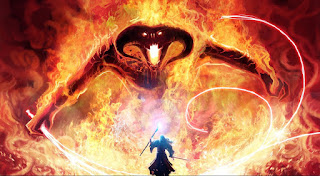It is difficult to push on through reading a book where you don't agree with the ideas. It is not quite as difficult as having a conversation with someone with aggressively different views, but it is hard. When the clash of ideas is live, the thing I struggle with is body language. We are very good at telling if someone is on the same page as us. A nodding head. The way legs and arms are crossed. Whether the way they sit is mirroring us. Tone of voice. There isn't a checklist, but we know. And we like it when people agree.
If we are able to allow a 'Bull Quota' for all the things we completely disagree with, there is a chance that we can get to some interesting ideas that will improve our questions. It is easier for our rational side to hold ideas in mind that we disagree with. Someone 'believing' that 2 + 2 = 5 is not upsetting. Where it gets difficult is when the language someone uses pushes our buttons. When it does trigger an emotional reaction. How do you train your elephant to behave?
There is an art to putting across ideas without emotional triggers. Absent the triggers, writing and conversation becomes boring. So art, and life, is normally applied in adding triggers and passion rather than taking away. Most books seem to be written for people who already almost agree with the author. They are peppered with lines that would upset people outside the tribe. Unlike live conversations, when the triggers come up, you can just put the book down. People are much more complex than books. They don't come with summaries and reviews. With Amazon ratings. You may be thoroughly enjoying the 'first few chapters' and then come across some impassable bridge. What do you do? How do you carry on enjoying their company when your elephant gets restless or even angry?

No comments:
Post a Comment